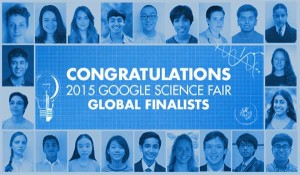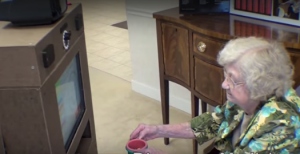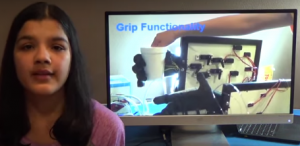
Google announced the finalists for its annual international science fair. There are projects from all over the world covering a wide variety of fields, including computer science. All the projects are by scientists under 18 years old.
The projects will be exhibited and judged at an event on September 21 at the Google Headquarters. You can browse through all 20 finalists at the Google Science Fair website, but here are two that stood out.
 ALAIR (Assisted Living Autonomous Internet Robot) by Benjamin Lourdes Hylak from Oxford, Pennsylvania. Benjamin, age 17, built an assisted living robot for $1,250 that can preform the duties of an in-home nurse, such as:
ALAIR (Assisted Living Autonomous Internet Robot) by Benjamin Lourdes Hylak from Oxford, Pennsylvania. Benjamin, age 17, built an assisted living robot for $1,250 that can preform the duties of an in-home nurse, such as:
- Healthcare/homecare monitoring
- Pill dispensing (correct pills on the correct schedule)
- Fall detection
- Routine healthcare monitoring
- Oxygen saturation
- Hear rate
- Blood pressure
- Temperature
The robot has been tested with over 100 elderly residents who live on their own and received an overwhelmingly positive response.
 MyGlove: Assisting Hand Movements, Grip, and Tremor by Surabhi Mundada from Olympia, WA. Surabhi, age 15, built a wearable glove that assists hand movements, improves grip, and detects and controls tremors. MyGlove helps people with neurological diseases carry out daily activities by using flex sensors for sensing finger movement, Force-Sensitive Resistors for grip, and accelerometers for detecting tremors.
MyGlove: Assisting Hand Movements, Grip, and Tremor by Surabhi Mundada from Olympia, WA. Surabhi, age 15, built a wearable glove that assists hand movements, improves grip, and detects and controls tremors. MyGlove helps people with neurological diseases carry out daily activities by using flex sensors for sensing finger movement, Force-Sensitive Resistors for grip, and accelerometers for detecting tremors.
Program algorithms can be adjusted to different assist strength factors and tremor detection/control parameters based on severity of involuntary hand movement and tremor. So, MyGlove’s functionalities can easily be customized and personalized based on individual’s needs.
See Google’s Science Fair website to view the other 18 Global Finalist.









